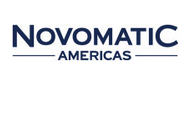
Late last year, the American Gaming Association announced that the Seminole Tribe of Florida had joined the group, the first Native American organization to become a member.
John Eder, senior vice president of finance for Seminole Gaming, says the arrangement will be good for the tribe and the industry.
“As part of this, we will have a voice in determining what’s the best road or path that we can take for gaming—not just Seminole Gam-ing but gaming in general—that will allow us to do business and be the most beneficial,” he said.
According to Geoff Freeman, the president and CEO of the AGA, “Our goal is to elevate the AGA’s ability to advocate for the entire gaming industry—in Washington, in the media and in communities across America.”
The addition of Native American tribes that offer gaming makes sense. There are a raft of issues that impact the overall gaming industry—FinCEN regs, labor rules, compliance issues, iGaming legalization and responsible gaming, just to name a few. By merging the two sides of the same industry into one voice, the gaming industry in the U.S. is strengthened. In this case, the sum of the parts is much greater than they would be individually.
Nonetheless, there were some segments of tribal gaming that were disturbed by the development. Some are worried that it will diminish the importance of the National Indian Gaming Association. Not likely. NIGA will always address tribal-specific issues that will not be part of the AGA’s purview. The commercial AGA members don’t really care about Carcieri, state compacts, the National Indian Gaming Commission or other strictly tribal issues. NIGA will still be the force that represents these issues before Congress.
Others just think that the constituencies of each part of the industry are too diverse. Commercial casino companies are more interested in investors, they say, while tribal casinos benefit members of the specific tribes. While that is true, the issues that challenge both commercial and tribal casinos could impact both constituencies negatively, so a unified voice benefits both investors and tribal members.
Under Freeman’s leadership, the AGA has recently begun to proactively address issues that are always controversial in the U.S. by presenting facts and not anecdotes. The AGA’s Get To Know Gaming campaign quantifies the impact of the industry on communities where it is located. For the first time, the AGA has included statistics on tribal gaming (where available) to present a far more complete picture of gaming’s impact. This not only makes the case for commercial casinos, but gaming as a whole, shining a positive light on casinos of all sorts.
With a series of reports by Oxford Economics, the AGA has identified why gaming jobs are not low-level, minimum-wage jobs, but they are the start of a career and the gateway to the middle class. In addition, the reports have revealed that minorities hold almost half of all gaming jobs, a larger percentage than most major industries in the U.S.
These positive reports have drawn attention from the mainstream media and have begun to influence decision-makers. To speed that process, the AGA has launched a “Gaming Votes” campaign that is designed to educate politicians on the facts of the gaming industry, and to show members of the industry the facts about the positions of candidates as they relate to gaming.
Tribal gaming is almost half of the gaming industry in the U.S. It doesn’t make sense to make distinctions between tribal and commercial gaming; to the communities, the customers and politicians, it’s often the same issues.
So not only can the AGA and NIGA coexist peacefully, there is a role where the two organizations can cooperate for the good of the industry and all its constituents. Does every gaming tribe need to join the AGA? Probably not, but the larger gaming tribes with revenues approaching $1 billion or more should certainly consider becoming a strong part of the AGA, just as they most likely are a strong part of NIGA. Together we’re much stronger than we are apart.


















